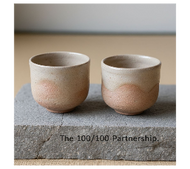A Practitioner's Guide to Stoicism & Relationships
Posted by Cato Pine on Oct 29th 2025
It’s one of the most common questions: "How does Stoicism apply to romantic relationships?"
It’s a fair question. For many of us, our partnership is the single most important "preferred indifferent" in our lives. It’s a constant, a mirror, and a powerful source of both joy and challenge.
Yet, the ancient texts are pretty thin on the subject. Marcus and Seneca were married, but they didn't exactly leave behind a "how-to" guide for modern romance. This silence often gets filled with bad interpretations, where "being Stoic" is misread as being cold, detached, or suppressing emotion.
That’s not practice. That's avoidance.
A relationship isn't an obstacle to your practice; it's arguably the most important training ground you have. A partnership is where your philosophy is truly tested.
So, how do we approach it? The philosopher Musonius Rufus, one of the few who did write about it, gives us a practical framework. It’s not about "life-hacking" your partner. It's about building your own character within the relationship.
Here’s a practitioner's breakdown.
- Choose Your Foundation (Not Just Your Type)
Our modern culture obsesses over superficial compatibility. We look for shared hobbies, similar tastes in music, or the right "look." Musonius would say we're starting in the wrong place.
He argued that you can't build a good life with someone if you fundamentally disagree on what "good" means.
The practice here is to look past the superficial and prioritize character. Are your core values aligned? Do you both value integrity, justice, and kindness? Do you have a shared vision for your life together?
You don't need to love the same movies. You do need to be heading in the same general direction. Look for "beauty of character and spirit." As Musonius pointed out, qualities like kindness, intelligence, and generosity are the only ones that last. Everything else is just noise.
- Build an Alliance, Not a Transaction
This is the most critical shift. Most people treat relationships as transactional, even if they don’t mean to. It's a 50/50 split.
- "I did the dishes, so you owe me."
- "I handled that social event, so you have to deal with this."
- "I compromised on this, so you have to compromise on that."
This is score-keeping. It's exhausting, and it’s the opposite of a partnership.
Musonius described an ideal partnership as a true alliance. An alliance isn't 50/50. It's 100/100. It’s not "yours" and "mine"; it's "ours." You both have complete ownership.
In an alliance, you don't keep score. You see yourself as allies working toward a common goal. You have each other’s back, period. This reframes every external challenge; sickness, a bad day at work, a difficult decision as something you face together, not as individuals who happen to live in the same house.
- Practice Emotional Generosity
Relationships fail, Musonius noted, when one or both partners focus only on their own interests and neglect the other’s.
The Stoic practice here is emotional generosity.
This does not mean being a doormat or passively accepting bad behavior. That isn't kindness; it's a lack of courage.
Emotional generosity is the conscious choice to give your partner the benefit of the doubt. It’s zooming out from the immediate, annoying thing they just did and remembering the larger context of your relationship.
Your partner will frustrate you. That is a guarantee. In that moment, you have a choice. You can get defensive, focus on being "right," and "win" the argument. Or, you can practice the virtue of self-control. You can remember your primary goal: to be a good person and to maintain a supportive marriage.
As Marcus Aurelius said, “Kindness is invincible, if it be sincere.”
By consistently choosing to be kind, fair, and supportive, you set the tone for the entire relationship. You're not trying to change your partner; you are focused on your actions and your character.
Ultimately, applying Stoic principles to your relationship isn't about your partner. It’s about you.
It’s about using this alliance as the ultimate arena to practice all four virtues:
- The Wisdom to choose a partner based on character.
- The Justice to treat them as a true and equal ally.
- The Courage to be emotionally generous, even when it’s hard.
- The Self-Control to not get lost in petty score-keeping and to focus on your own actions.
It's hard work. It's a lifelong practice. But as Musonius reminds us, "Such a partnership is beautiful.”

